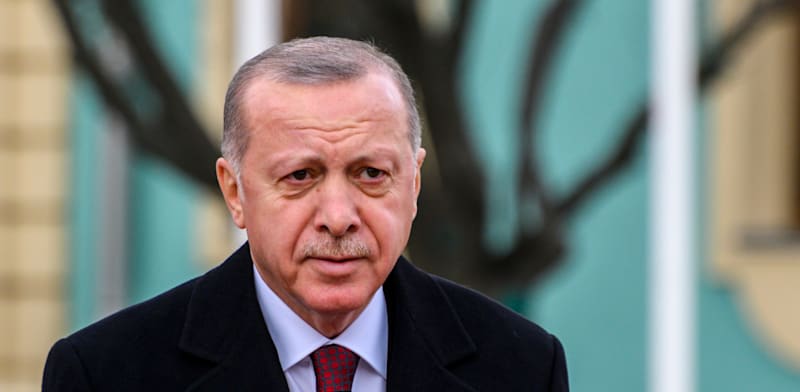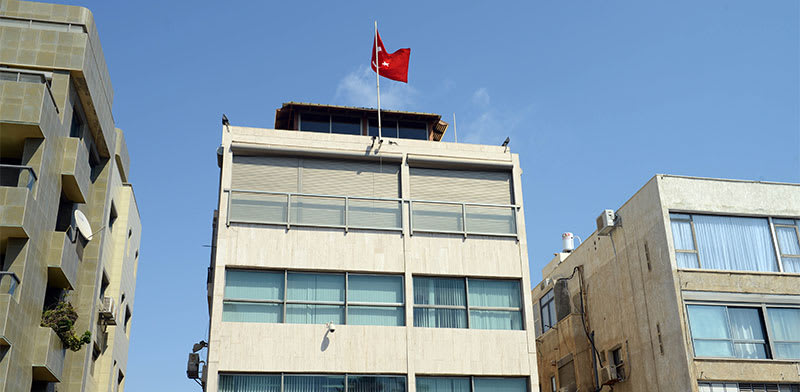Relations between Israel and Syria are thawing, with the Americans hoping that a historic agreement will be reached in which Ahmed al-Sharaa’s regime will join the countries normalizing relations with Israel. The US has already begun to ease the sanctions on Syria, and as part of its attempts to resolve the tensions between Israel and al-Sharaa’s patron, Turkish President Recep Tayyip Erdogan, the US could lift the ban on the sale of F-35 aircraft to Turkey – a step that would significantly harm Israel’s air superiority in the region.
As part of his regional vision, President Donald Trump wants conflicts to end – all the more so when it comes to tensions between Washington’s strategic allies like Israel and Turkey. To realize this, Trump is putting a lot of money on the table. “Greece and Israel are working with the US to delay approval of the sale of F-35s to Turkey,” a senior Greek official tells Globes. “However, all parties have already realized that it is only a matter of time before Turkey is brought back into the project.”
“By the end of the year, there is a likelihood that we will reach a solution (to the F-35 issue),” US Ambassador to Turkey Tom Burke told state-run Anadolu news agency. The main stumbling block on the way to approving the sale of fifth-generation aircraft to Ankara is not related to Israel, but to congressional laws. Turkey was removed from the F-35 project during Trump’s first term, in 2019, because of Erdogan’s insistence on purchasing Russian S-400 air defense batteries. The same deal led to the imposition of CAATSA sanctions, which stipulate that if you procure Russian weapons, you are defined as an adversary of the US and sanctions are imposed. “All of these things have been discussed for five years,” Ambassador Burke noted. “F-35 F-16, S-400, sanctions, tariffs. Enough. “We have to move this aside, and Congress wants to reexamine the issue.”
The Turkish concession
The current situation is uncomfortable for the US, which operates the Incirlik Air Force Base in eastern Turkey, where nuclear weapons are stationed, and the Kurecik radar base, which is believed to have aided Israel during the Iran operation. Congress is not expected to agree to the continued deployment of the S-400 batteries, for which Erdogan reportedly paid Russia $2.5 billion, but Turkey will give them up on a model that would be favorable to Ankara. A likely scenario that would also meet Turkey’s interests in strengthening the Syrian regime is to transfer the systems to Syria.
RELATED ARTICLES
On the ground, it appears that the Turkish president is already engaged in a public relations campaign to get the Turkish public used to the idea of giving up the S-400 systems, after the damage caused by their procurement. Using the superiority that Israel demonstrated over Iran, Erdogan is telling the public that the S-400 systems are unable to meet “full” Turkish air defense requirements. “Our society has realized this these days (in connection with the Israel-Iran war),” Erdogan said. “We are required to create a multi-layered air defense system.” If Erdogan does succeed in bringing his country back into the F-35 project, a question mark will surround the continued huge Turkish investments in the development of the Turkish fifth-generation Kaan aircraft, which should become operational in the next decade and compete with the advanced aircraft manufactured by Lockheed Martin.
Syrian refugees returning home
The US is interested in expanding the Abraham Accords, and Washington’s ambition is to create a package deal that will include the realization of all goals, knowing that in the absence of F-35 aircraft, Erdogan will find it difficult to normalize relations with Israel.
Erdogan’s hardship stems from two main factors: First and foremost, the Palestinian issue is very significant in Turkish politics in general and in Erdogan’s voter base in particular. As a result, any normalization of relations with Israel is accompanied by great criticism from within. At the same time, with the establishment of the Abraham Accords in 2020, Turkey was one of the most critical voices against the UAE, Bahrain, and Morocco. Now, if al-Sharaa enters the Abraham Accords, Ankara will be required to find explanations for the green light it has given to such a significant move at the regional level that benefits Israel.
Ankara will not admit this, but there has been satisfaction over Iran’s weakness and the vulnerabilities in its ballistic missile and nuclear programs, even if Israel’s considerable power does not align well with Turkish interests. “We do not understand why Israel does not internalize that our interests are aligned – especially in preventing Iran from regaining its influence in post-Assad Syria,” a senior Turkish official told Al-Monitor.
During Israel’s Iran operation, senior Turkish security officials arrived to inspect the Turkish-Iranian border, due to concerns about an influx of refugees that would weigh on the Turkish economy. One of Erdogan’s considerations in encouraging the swift takeover of Syria by al-Sharaa immediately after the ceasefire between Israel and Hezbollah was the desire to return the three million Syrian refugees living in Turkey return home without forcing them back. Turkish state data indicate that since the coup in December, more than 300,000 Syrians have returned home.
Published by Globes, Israel business news – en.globes.co.il – on July 3, 2025.
© Copyright of Globes Publisher Itonut (1983) Ltd., 2025.








